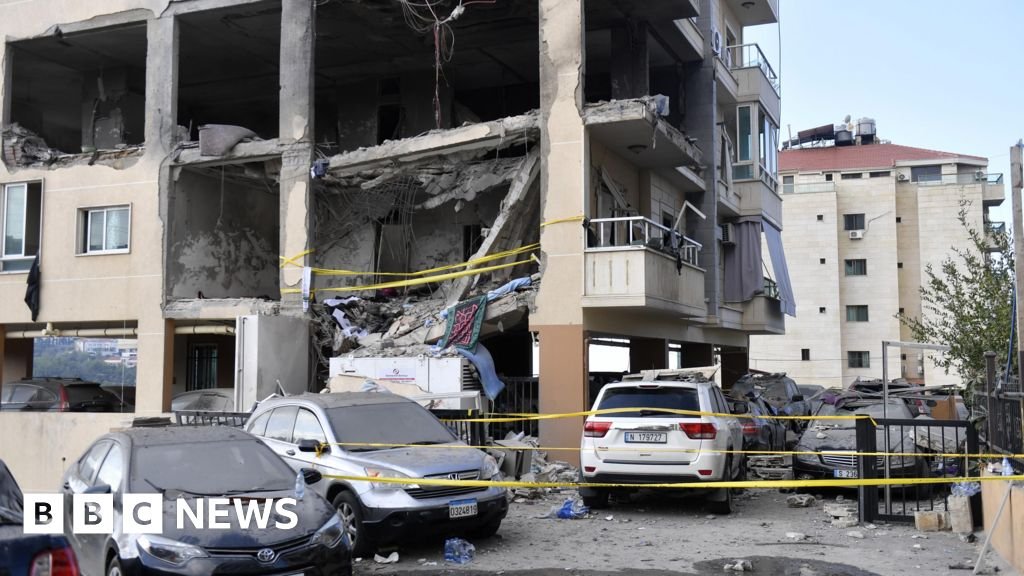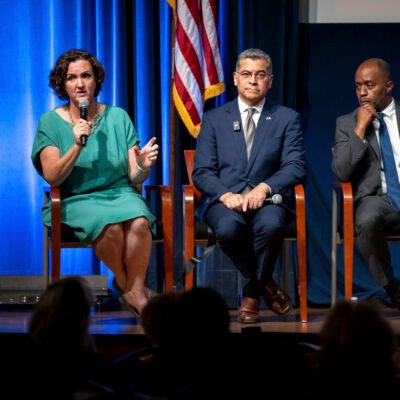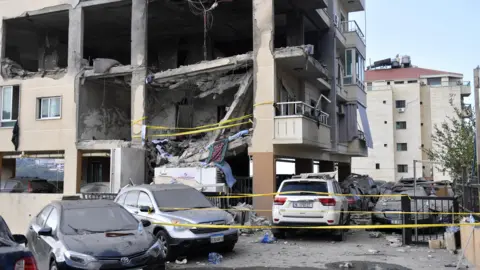 EPA
EPAThe rescue workers had just left when we arrived at the scene of an Israeli air strike on a building in Aramoun, south-west of Lebanon’s capital Beirut.
It was supposed to have been cleared. They had found eight bodies – including three children and three women – and taken the many injured to hospitals; some were in a critical condition.
Then several men on a balcony in a building opposite started shouting: “A hand, a hand. We can see a hand.”
They were pointing at a balcony on the second floor, which was completely destroyed and had crumbled on to the collapsed floor below.
A young man climbed on to the mound of rubble. He reached the spot, moved some of the rubble, then held something up that could not be identified from distance.
Later, I asked him if he did find a hand. He replied: “No. It wasn’t a hand. It was a piece of bone from a head.”
The multi-storey building that was hit is located in a residential area.
We were told that most of the people there were internally displaced, mainly from the south of the country or the southern suburbs of Beirut.
They are areas where Hezbollah has a strong presence and which have been frequently targeted by Israel during its war with the Iran-backed political and military group.
Aramoun is a religiously mixed area and until Wednesday it was deemed safe because it had not been hit before.
The dawn strike came without warning.
“It was around 4 o’clock in the morning. We were asleep. We woke up because of a very strong thud. We couldn’t see anything in the beginning because of the smoke that was everywhere,” said a mother of two who lived in the building opposite.
She had sought refuge in her uncle’s house in Aramoun after Israel started bombing Beirut’s southern suburbs.
“Israel is striking everywhere. There is nowhere that is safe anymore,” she added.
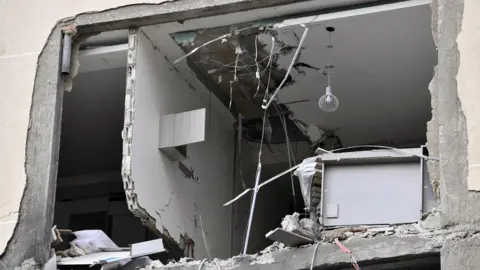 EPA
EPAAnother woman in her 80s was being rushed to a car.
She had moved to Aramoun a month ago, also from Beirut’s southern suburbs.
After the strike, she left with everyone else in the building and spent two or three hours in their car on the street.
When we saw her, she was collecting some of her possessions. She told us she was very scared and was moving once more.
This time, she said, she was going to her son’s place. He is displaced as well.
When asked about any prospects of an end of hostilities soon, she replied: “The more they talk about a ceasefire, the more Israel intensifies its strikes.”
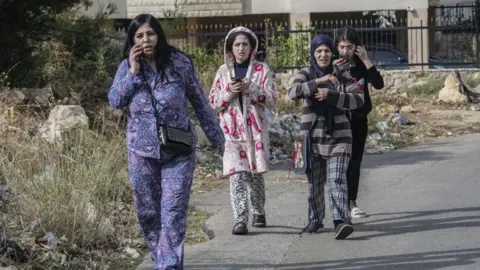 Getty Images
Getty ImagesThe Israeli military has not yet said who or what it targeted in Aramoun.
But the strike bore similarities to several in other parts of the country: launched without warning on residential buildings or houses hosting displaced people. The Israeli military has said many of those strikes have targeted Hezbollah infrastructure.
The attacks are causing increasing social unease within host communities, with residents voicing concern over the possibility of Israel targeting displaced people living among them or others visiting, often to deliver financial assistance.
“We all love the resistance [Hezbollah], but if someone has a son and isn’t even sure he is in Hezbollah, or someone is coming to give aid to displaced people and they are being targeted, we are paying the price,” said one man who owns house in the area that was struck and lives there with his wife and child.
He added: “The displaced came as guests and we welcome them. But if there is someone stranger here, whoever he is – it might be my own child and I’m not aware of him being in Hezbollah – and they target him, and children and women get killed, isn’t that pitiful?”
Such comments have become more common following the recent series of Israeli strikes in various parts of the country which are outside the known areas of hostilities.
But at the same time there are increasing calls in Lebanon for national unity as well as warnings that such strikes from Israel could be purposely designed to create that social unease.

